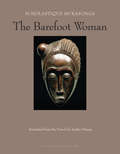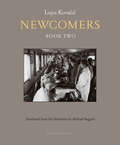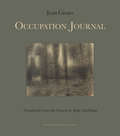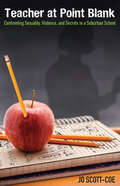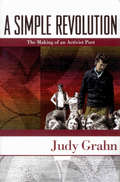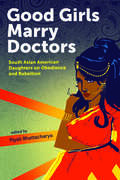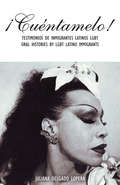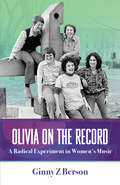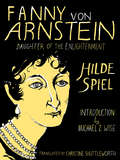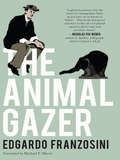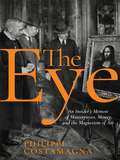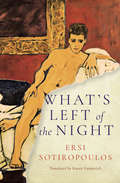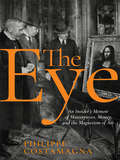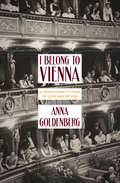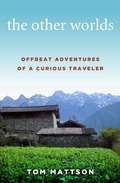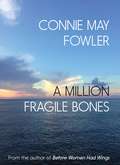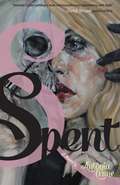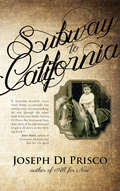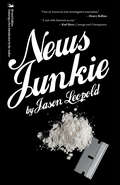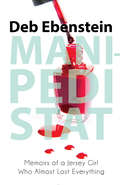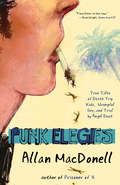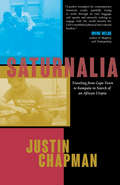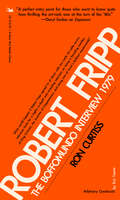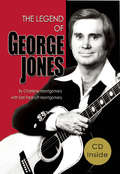- Table View
- List View
The Barefoot Woman
by Scholastique MukasongaA moving, unforgettable tribute to a Tutsi woman who did everything to protect her children from the Rwandan genocide, by the daughter who refuses to let her family's story be forgotten.The story of the author's mother, a fierce, loving woman who for years protected her family from the violence encroaching upon them in pre-genocide Rwanda. Recording her memories of their life together in spare, wrenching prose, Mukasonga preserves her mother's voice in a haunting work of art.
Newcomers: Book Two
by Lojze KovacicThe first volume of this three-part autobiographical series begins in 1938 with the expulsion of the Kovacic family from their home of Switzerland, eventually leading to their settlement in the father's home country of Slovenia. Narrated by Kovacic as a ten-year-old boy, he describes his family's journey with uncanny naiveté. Before leaving their home, he imagines his father's home country as something beautiful out of a fairytale, but as they make their way toward exile, he and his family realize that any attempt to make a home in Slovenia will be in vain. Confronted by misery, hunger, and hostility, the young boy refuses to learn Slovenian and falls silent, his surroundings becoming a social, cultural and mental abyss. Kovačič meticulously, boldly, and sincerely portrays the objective, everyday world; the style is clear and direct. Told from the point of view of a child, one memory is interrupted by fragments and visions of another. Some are innocent and tender, while others are miserable and ruthless, resulting in a profound and heart-wrenching description of a period torn apart by conflict, reflected in the author's powerful and innovative command of language.
Occupation Journal
by Jean GionoA captivating literary and historical record, Jean Giono's Occupation Journal offers a glimpse into life in collaborationist France during the Second World War, as seen through the eyes and thoughts of one of France's greatest and most independent writers.Written during the years of France's occupation by the Nazis, Jean Giono's Occupation Journal reveals the inner workings of one of France's great literary minds during one of the country's darkest hours. A renowned writer and committed pacifist throughout the 1930s--a conviction that resulted in his imprisonment before and after the Occupation--Giono spent the war in the village of Contadour in Provence, where he wrote, corresponded with other writers, and cared for his consumptive daughter. This journal records his musings on art and literature, his observations of life, his interactions with the machinery of the collaborationist Vichy regime, as well as his forceful political convictions. Giono recounts the details of his life with fierce independence of thought and novelistic attention to character and dialogue. Occupation Journal is a fascinating historical document as well as a unique window into one of French literature's most voracious and critical minds.
Teacher at Point Blank: Confronting Sexuality, Violence, and Secrets in a Suburban School
by Jo Scott-CoeWhy would a high school teacher who loves teaching leave school—after half a career in the classroom? Teacher at Point Blank answers this question at a time when concerns about school performance, safety, and teacher attrition are at an all-time and often anxious high. Meditating on subtle and overt forms of violence in secondary public education from an up-close and “pink collar” point of view, Jo Scott-Coe examines her own workplace as a microcosm of the national compulsory K-12 system, where teachers—now nearly 80% women—find themselves idealized and disparaged, expected to embody the dedication of parents, the coldness of data managers, and the obedience of Stepford spouses. Haunted and compelled forward by memories of a classmate who commits suicide on campus, a former teacher-colleague who dies all alone, Hollywood fantasies of the “ideal teacher,” and chronic reports of school violence and increasing gender crime, Scott-Coe reveals how her hopes, past and present, struggle for breath at the point blank of denial, confinement, addiction, isolation, hostility, subliminal eroticism—and, at times, a healthy dose of fear. Jo Scott Coe's very fine memoir of her teaching life is unlike anything I have read before. Her lean prose is unyielding to sentimentality and aspires always toward honesty about our lives as adults and as children. One is, here, in the presence of a writer who convinces us that teaching young lives is a constant and, sometimes, terrible journey of adult self-discovery. —Richard Rodriguez, author of Brown: The Last Discovery of America This unique and daring book lifts the cheerful, can-do mask that hides the reality of what it means to be a teacher. In luminous prose, Jo Scott-Coe debunks the sentimentalized mystique, exposing the harsh reality of extreme expectations, isolation, and psychic disconnect that engulfs teachers' lives. Scott-Coe's truth is at once disturbing and emancipating. —Susan Ohanian, author of Why Is Corporate America Bashing Our Public Schools?Jo Scott-Coe writes with humor, insight, and a deep love for her subject. In many ways, she has become a voice for her generation and for teachers, too. Remarkable. —Chris Abani, author of GraceLand and The Virgin of Flames Why would a high school teacher who loves teaching leave school—after half a career in the classroom? Teacher at Point Blank answers this question at a time when concerns about school performance, safety, and teacher attrition are at an all-time and often anxious high. Meditating on subtle and overt forms of violence in secondary public education from an up-close and “pink collar” point of view, Jo Scott-Coe examines her own workplace as a microcosm of the national compulsory K-12 system, where teachers—now nearly 80% women—find themselves idealized and disparaged, expected to embody the dedication of parents, the coldness of data managers, and the obedience of Stepford spouses. Haunted and compelled forward by memories of a classmate who commits suicide on campus, a former teacher-colleague who dies all alone, Hollywood fantasies of the “ideal teacher,” and chronic reports of school violence and increasing gender crime, Scott-Coe reveals how her hopes, past and present, struggle for breath at the point blank of denial, confinement, addiction, isolation, hostility, subliminal eroticism—and, at times, a healthy dose of fear. Jo Scott Coe's very fine memoir of her teaching life is unlike anything I have read before. Her lean prose is unyielding to sentimentality and aspires always toward honesty about our lives as adults and as children. One is, here, in the presence of a writer who convinces us that teaching young lives is a constant and, sometimes, terrible journey of adult self-discovery. —Richard Rodriguez, author of Brown: The Last Discovery of America This unique and daring book lifts the cheerful, can-do mask that hides the reality of what it means to be a teacher. In luminous prose, Jo Scott-Coe debunks the sentimentalized mystique, exposing the harsh reality of extreme expectations, isolation, and ps
A Simple Revolution: The Making of an Activist Poet
by Judy GrahnWinner of the Independent Publisher Book "IPPY" Award and an American Book Award! Rooted in a Chicana/Latina/indigenous geographic and cultural sensibility, the stories of flesh to bone take on the force of myth, old and new, giving voice to those who experience the disruption and violence of the borderlands. In these nine tales, Silva metes out a furious justice—a whirling, lyrical energy—that scatters the landscape with bones of transformation, reclamation, and healing. …An original and authentic voice…with a unique vision. A blend of indigenismo and folktales retold in a modern vein…these stories come from the clouds, from spirits of ancient ancestors, from the oblique corners of the human consciousness…A new and engaging duende is born. —Alejandro Murguia, author of This War Called Love If Chagall had written, he would have painted words in the fierce brushstrokes of ire’ne lara silva’s stories. If Remedios Varo had told stories, she would have wound the tendrils of her magic the way ire’ne lara silva paints her world. —Cecile Pineda, author Devil’s Tango: How I Learned the Fukushima Step by Step ire’ne lara silva writes about what’s between dark shadow and daylight, when, as on the Day of the Dead, we are so aware of the sacred. Though fiction, ire’ne’s prose seems to transform into chanting verse. —Dagoberto Gilb, author of Before the End, After the Beginning: StoriesIn her brilliant fiction debut, flesh to bone, ire’ne lara silva uses hauntingly lyrical language to tell stories cast in the Latin American tradition of Juan Rulfo and Maria Luisa Bombal. But, do not mistake this work for magical realism. The fantastical elements, raw voices, and shifting realities inhabit an emotional, psychological, and all-too-physical landscape of loss and violence. Life-affirming and intense, the stories sweep us into another world where we come face to face with the deepest truths. Brava! —Norma Cantú, author of Canícula: Snapshots of a Girlhood en la Frontera
Good Girls Marry Doctors: South Asian American Daughters on Obedience and Rebellion
by Ayesha Mattu Sona Charaipotra Tarfia Faizullah Ankita Rao Fawzia Mirza Hema Sarang-Sieminski Jabeen Akhtar Jyothi Natarajan Leila Khan Madiha Bhatti Mathangi Subramanian Meghna Chandra Natasha Singh Nayomi Munaweera Neelanjana Banerjee Phiroozeh Romer Piyali Bhattacharya Rachna Khatau Rajpreet Heir Roksana Badruddoja Sayantani Dasgupta Sj Sindu Surya Kundu Swati Khurana Tanzila Ahmed Tara Dorabji Triveni GandhiGOOD GIRLS MARRY DOCTORS: SOUTH ASIAN AMERICAN DAUGHTERS ON OBEDIENCE AND REBELLION, edited by Piyali Bhattacharya, is the first anthology to examine the multiple facets of daughterhood in South Asian American families.
¡Cuéntamelo!: Testimonios de Inmigrantes Latinos LGBT / Oral Histories by LGBT Latino Immigrants
by Juliana Delgado Lopera Laura Cerón Melo Eva Seifert Virginia Benavidez Shadia Savo Santiago Acosta Adela Vázquez Alexandra Cruz Manuel Rodríguez Cruz Marlen Hernández Carlos Sayán Wong Mahogany Sánchez Nelson D’Alerta¡Cuéntamelo! Oral Histories by LGBT Latino Immigrants. ¡Cuéntamelo! began as a cover story for SF Weekly, and, eventually in 2014 with local grant support, Juliana Delgado Lopera was able to publish a limited first edition of 300. Aunt Lute is pleased to bring this title back into circulation. In addition to beautiful black and white drawings of the contributors by artist Laura Cerón Melo, this edition features a number of candid earlier photographs of several of the contributors, as well as a new introduction from Juliana. ¡Cuéntamelo! is “[a] stunning collection of bilingual oral histories and illustrations by LGBT Latinx immigrants who arrived in the U.S. during the 80s and 90s. Stories of repression in underground Havana in the 60s; coming out trans in Catholic Puerto Rico in the 80s; Scarface, female impersonators, Miami and the 'boat people'; San Francisco’s underground Latinx scene during the 90s and more.”¡Cuéntamelo! is bilingual. All stories in this book have both an English and Spanish version.
Olivia on the Record: A Radical Experiment in Women's Music
by Ginny Z BersonThe burgeoning lesbian and feminist movements of the '70s and '80s created an impetus to form more independent and equitable social and cultural institutions—bookstores, publishers, health clinics, and more—to support the unprecedented surge in women's arts of all kinds. Olivia Records was at the forefront of these models, not only recording and distributing women's music but also creating important new social spaces for previously isolated women and lesbians through concerts and festivals. Ginny Z. Berson, one of Olivia's founding members and visionaries, kept copious records during those heady days—days also fraught with contradictions, conflicts, and economic pitfalls. With great honesty, Berson offers her personal take on what those times were like, revisiting the excitement and the hardships of creating a fair and equitable lesbian-feminist business model—one that had no precedent.
Fanny von Arnstein: Daughter of the Enlightenment
by Hilde Spiel Michael Z. Wise Christine ShuttleworthBerlin-born Fanny von Arnstein married a financier to the Austro-Hungarian imperial court, and in 1798 her husband became the first unconverted Jew in Austria to be granted the title of baron. Soon Fanny hosted an ever more splendid salon which attracted the leading figures of her day, including Madame de Staël and Arthur Schopenhauer. Hilde Spiel's biography provides a vivid portrait of a brave and passionate woman, illuminating a central era in European cultural and social history."Von Arnstein represents one of the most fascinating and paradoxical eras in modern Jewish history ... For an American Jewish reader, Fanny von Arnstein is fascinating above all as a cautionary tale - and a reminder of our luck at having avoided the excruciating choices that Fanny, and so many Jews like her, had to face."- Adam Kirsch, Tablet Magazine"This book is indispensable for those interested in the history of culture, the role of women, and the transition of the Jewish community out of the ghetto toward the center of European life."- Leon Botstein, President of Bard College, author of Judentum und Modernität and co-editor of Vienna: Jews and the City of Music"In capturing the fascination of Fanny von Arnstein and her times, Hilde Spiel provides both a finely drawn portrait of a defining figure of her era, but also of the times themselves."- John Kornblum, former U.S. Ambassador to Germany
The Animal Gazer
by Edgardo FranzosiniA poignant biographical novel about a WWI-era sculptor: “It’s difficult not to love the eccentric, fragile Rembrandt Bugatti and suffer alongside him” (The New York Times Book Review). The Animal Gazer is a hypnotic novel inspired by the strange and fascinating life of sculptor Rembrandt Bugatti, brother of the fabled automaker. With World War I closing in and the Belle Époque teetering to a end, Bugatti leaves his native Milan for Paris, where he encounters Rodin and casts his bronzes at the same foundry used by the French master. In Paris and then Antwerp, he obsessively observes and sculpts the baboons, giraffes, and panthers in the municipal zoos, finding empathy with their plight and identifying with their life in captivity. But as the Germans drop bombs over the Belgian city, the zoo authorities are forced to make a heart-wrenching decision about the fate of the caged animals, and Bugatti is stricken with grief from which he’ll never recover. Rembrandt Bugatti’s work is displayed in major museums around the world, and in this prize-winning novel, “an irresistible, elegantly conceived example of biographical fiction,” Edgardo Franzosini recreates the young artist’s life with lyricism, passion, and sensitivity (Library Journal). “The Animal Gazer takes you on a glorious journey into the heart of cosmopolitan Paris as you have never known it before. Through the life of Rembrandt Bugatti, a sculptor with the panache of his name, this lively, fast-paced narrative evokes an exceptional epoch in all its color and eccentric charm.” ―Nicholas Fox Weber, author of Le Corbusier: A Life
The Eye: An Insider's Memoir of Masterpieces, Money and the Magnetism of Art
by Philippe CostamagnaIt's a rare and secret profession, comprising a few dozen people around the world equipped with a mysterious mixture of knowledge and innate sensibility. Summoned to Swiss bank vaults, Fifth Avenue apartments, and Tokyo storerooms, they are entrusted by collectors, dealers, and museums to decide if a coveted picture is real or fake and to determine if it was painted by Leonardo da Vinci or Raphael. The Eye lifts the veil on the rarified world of connoisseurs devoted to the authentication and discovery of Old Master artworks. This is an art adventure story and a memoir all in one, written by a leading expert on the Renaissance whose métier is a high-stakes detective game involving massive amounts of money and frenetic activity in the service of the art market and scholarship alike. It's also an eloquent argument for the enduring value of visual creativity, told with passion, brilliance, and surprising candor. PHILIPPE COSTAMAGNA is a specialist in sixteenth-century Italian painting and director of the Musée des Beaux-Arts in Ajaccio, Corsica. He is the author of a book on the Florentine Renaissance painter Pontormo.
What's Left of the Night
by Ersi Sotiropoulos&“A lyrical and erotic reimagining of the gay Greek-Alexandrian poet C.P. Cavafy&’s three-day trip to Paris in 1897 . . . dizzying, fevered and beautiful.&” —The Millions Winner of the 2019 National Translation Award In June 1897, the young Constantine Cavafy arrives in Paris on the last stop of a long European tour, a trip that will deeply shape his future and push him toward his poetic inclination. With this lyrical novel, tinged with a hallucinatory eroticism that unfolds over three unforgettable days, celebrated Greek author Ersi Sotiropoulos depicts Cavafy in the midst of a journey of self-discovery across a continent on the brink of massive change. He is by turns exhilarated and tormented by his homosexuality; the Greek-Turkish War has ended in Greece&’s defeat and humiliation; France is torn by the Dreyfus Affair, and Cavafy&’s native Alexandria has surrendered to the indolent rhythms of the East. A stunning portrait of a budding author—before he became one of the 20th century&’s greatest poets—that illuminates the complex relationship of art, life, and the erotic desires that trigger creativity. &“A perfect book.&” ―Edmund White, author of A Boy&’s Own Story &“The novel is as sensual as it is erudite, a stirringly intimate exploration of the private, earthy place where creation commences.&” ―The Wall Street Journal &“A remarkable novel . . . both a radiant work of the imagination and a fitting tribute to the greatest Greek poet of the twentieth century.&” ―The Times Literary Supplement &“Engaging and original . . . powerfully erotic . . . This is a hallucinatory work of art, in every sense.&” ―The Literary Review
The Eye: An Insider's Memoir of Masterpieces, Money, and the Magnetism of Art
by Philippe Costamagna&“Lifting the veil on the shadowy world of art insiders, Costamagna delivers an entertaining reflection on the dealers, devotees, and decision makers.&” —Town & Country Magazine It&’s a rare and secret profession, comprising a few dozen people around the world equipped with a mysterious mixture of knowledge and innate sensibility. Summoned to Swiss bank vaults, Fifth Avenue apartments and Tokyo storerooms, they are entrusted by collectors, dealers and museums to decide if a coveted picture is real or fake and to determine if it was painted by Leonardo da Vinci or Raphael. The Eye brings to light the rarified world of connoisseurs devoted to the authentication and discovery of Old Master art works. This is an art adventure story and a memoir all in one, written by a leading expert on the Renaissance whose métier is a high-stakes detective game involving massive amounts of money and frenetic activity in the service of the art market and scholarship alike. It&’s also an eloquent argument for the enduring value of visual creativity, told with passion, brilliance and surprising candor. &“[A] rollicking and erudite tour of the art world . . . Costamagna&’s candor and well-earned hubris make for an entertaining foray into the high-stakes art world.&” —Publishers Weekly &“As thrilling as a police novel.&” —La Croix &“An insider&’s look at the dramatic world of attributing and dating art . . . This art world Sherlock Holmes travels the globe . . . Delightful.&” —Introspective Magazine &“One comes away feeling somewhat re-sensitized to beauty and somewhat nostalgic for an era when museums weren&’t the selfie-stick madhouses they are today.&” —The Washington Post
I Belong to Vienna: A Jewish Family's Story of Exile and Return
by Anna GoldenbergA memoir of family history, personal identity, and WWII Vienna—a &“well-researched, intimate, evocative look at some of the 20th century&’s foulest days&” (Kirkus). In autumn 1942, Anna Goldenberg&’s great-grandparents and one of their sons are deported to the Theresienstadt concentration camp. Hans, their elder son, survives by hiding in an apartment in the middle of Nazi-controlled Vienna. But this is no Anne Frank-like existence; teenage Hans passes time in the municipal library and buys standing room tickets to the Vienna State Opera. He never sees his family again. Goldenberg reconstructs this unique story in magnificent reportage. She also portrays Vienna&’s undying allure. Although they tried living in the United States after World War Two, both grandparents eventually returned to the Austrian capital. The author, too, has returned to her native Vienna after living in New York herself, and her fierce attachment to her birthplace enlivens her engrossing biographical history. I Belong to Vienna is a probing tale of heroism and resilience marked by a surprising freshness as a new generation comes to terms with history&’s darkest era.
The Other Worlds: Offbeat Adventures of a Curious Traveler
by Tom Mattson“None of it was meant to be: the stories and anecdotes that appear in this book, my travels to far-flung other worlds, being face-to-face with hundreds of strangers. Yet here we are, and there I’ve been, and somehow, strangers became friends.” From the Introduction Meet Tom Mattson’s friends including Maribel, on a park bench in Havana; Braulio, a silver miner in Bolivia; Chema, a Guatemalan fisherman —- and dozens more around the world. Discover the stories of their lives, their experiences, and their histories, so different from your own. Be charmed by the Minnesota storyteller who draws you into The Other Worlds with ease and who delights in sharing the sights, sounds, smells, and serendipities of his adventures with armchair - and active - travelers everywhere.
A Million Fragile Bones: A Memoir
by Connie May FowlerConnie May Fowler began that day as she had begun most days for the previous sixteen years, immersed in the natural world that was her home on Alligator Point on Florida's gulf coast, surrounded by dunes and water birds, watching dolphins swim in the distance. Then began the nightmare from which she would not emerge for more than a year. <P><P>In her memoir, A MILLION FRAGILE BONES, she details the beauty and peace she found on Alligator Point after years of heartbreak and loss, and the devastation and upheaval that followed the oil spill. It is, at its heart, a love song to the natural world and a cry of anger and grief at its ruin for the sake of corporate profits.on. Their first child, born in Vietnam, introduced them to exotic travel and a poor but loving orphanage where infants slept with their caretakers. <P><P>Then came Guatemala, a beautiful, impoverished country where Booker's two younger children lived in tiny cribs with so little human interaction that they repeatedly rubbed their heads back and forth on the mattress just to be able to feel. <P><P>In candid, raw prose, Booker tells the story of her family, including her son's diagnosis of Anxious-Attachment Disorder, the service dog she trained to help him, and her and her husband's chaotic attempts to simplify their lives in order to heal their son.
Spent: A Memoir
by Antonia CraneA small town girl leaves her troubled family and starts stripping - which introduces her to a community that keeps her sober and saves her life - but a roller-coaster lifestyle ensues. She gets drugged, does enema shows, and unionizes the club. When she tries to quit and go to graduate school, her mother is diagnosed with terminal cancer. Broke and broken, she returns to sex work, which leads to her arrest and a new resilience. Spent is a memoir about a woman's journey through the sex industry, but it's also a story of family, community, and the constant struggle against loneliness.
Subway to California
by Joseph Di PriscoIn 1960, the Di Prisco family fled Brooklyn-and the FBI. The father was a compulsive gambler and small-time member of a crew that specialized in bookmaking. He knew too much about police corruption to stick around and break bread with federal agents who on Sunday afternoon tracked him into the woods of Long Island. He escaped at age thirty-five and ended up in a strange place called California, where his Brooklyn-born wife and two of her four sons eventually joined him. One of those sons, Joe, would be the only one in the family to graduate from high school, and he would come to make book of a different sort.He wasn't called to a life of crime, but the evidence is mixed. One day, Joe himself would be named the prime suspect in a federal racketeering investigation. This was somebody who, as a young man, lived as a Brother in a Roman Catholic novitiate. During Vietnam he was an activist who took over his college's administration building. He played blackjack professionally around the world, staked by big-money backers. He managed Italian restaurants with laughable ineptitude. He also did graduate study and taught for twenty years.
News Junkie
by Jason LeopoldIn News Junkie, the cutthroat worlds of journalism, politics, and high finance are laid bare by Jason Leopold, whose addictive tendencies led him from a life of drug abuse and petty crime to become an award-winning investigative journalist who exposed some of the biggest corporate and political scandals in recent American history. Leopold broke key stories about the California energy crisis and Enron Corporation's infamous phony trading floor as a reporter for the Dow Jones Newswires. While he exposed high-rolling hucksters and double-dealing politicians, Leopold hid the secrets of his own felonious past, terrified that he would be discovered. When the news junkie closed in on his biggest story - one that implicated a Bush administration member - he found himself pilloried by angry colleagues and the president's press secretary, all attempting to destroy his career. Introducing an unforgettable array of characters - from weepy editors and love-starved politicos to steroid-pumped mobsters who intimidate the author into selling drugs and stolen goods - News Junkie shows how a man once fueled by raging fear and self-hatred transforms his life, regenerated by love, sobriety, and a new, harmonious career with the independent media.
Mani-Pedi STAT
by Deb EbensteinA laugh-out-loud funny, sassy, helpful, and profoundly honest memoir, Mani-Pedi STAT chronicles Deb Ebenstein's two bouts with cancer, and a rare blood disorder, between the ages of 16 and 33. Navigating cancer treatments while continuing to balance real life and then returning to a world she doesn't quite recognize anymore, her story is told through the eyes of a bright-eyed Jersey girl who loves boys, sports, fashion, and ultimately a family of her own.Deb discovers that at the very worst of times-when her body is bloated and her future is uncertain and bleak-that the generosity of girlfriends, family, and a good mani-pedi can lift the spirits and help her thrive and survive. Mani-Pedi STAT is for survivors, friends of survivors, and memoir lovers alike. It will bring patienthood to life in ways that make you laugh and cry at the same time, and along the way you might learn a thing or two for your next trip to the doctor's office.
God of Speed
by Luke DaviesI will fly at last. I will unfold my wings. I will unpack my head. I will step back outside. One day I may even make love again. But one thing at a time. Let's not get ahead of ourselves. Film mogul, aviator, addict, inventor, visionary, recluse, serial womanizer, and political meddler: Howard Hughes was one of the strangest and most significant figures of the 20th century. His obsessive-compulsive disorder would end up crippling and isolating him; in the end he self-medicated his way into oblivion. It's a summer night in 1973, and holed up in his hotel penthouse in London, Hughes can't sleep. Tomorrow he takes control of an airplane for the first time in more than 15 years. As the reclusive, drug-addled billionaire waits for dawn, the shape and preoccupations of the times emerge from his ruined psyche; a world of oil, flight, money, movies, drugs, sex, power, greed, fear, yearning America. Transcendent and debauched, God of Speed is a fever dream, a giant and extraordinary leap of the imagination into the fractured mind of a man who was both great and greatly fallen.
PunkElegies
by Allan MacdonellPunk Elegies arrives like a chemically unstable mixture of Richard Yates and Damon Runyon. Set along Hollywood Boulevard at the birth of punk and the death of the 1970s, the thirty-three melancholic, comic laments of Punk Elegies are a mesmerizing concoction of delusion and revelation. A cultural moment, a marriage and one young man’s mind and soul spiral through a series of boundless possibilities and arrive at a harrowing finality. In the end, on the spin cycle of destiny, MacDonell circles alone, naked and bewildered in the labyrinth of a pre-AIDS bathhouse inferno. The first sunrise of the rest of his life dares him to step outside.
Saturnalia
by Justin ChapmanIn the Spring of 2012, reporter and travel junkie Justin Chapman threw his cares to the wind and, by himself, set off on an epic journey across eight countries in Africa - from Cape Town, South Africa, to Mityana, Uganda - by bus, train, and boat. Along the way, he narrowly escaped being locked away in a mental institution, visited an impoverished township that is changing its future with the help of an art-based nonprofit, got into a life-threatening car crash, dropped acid on the mystical island of Zanzibar, lived with a group of Catholic priests, witnessed a witchcraft healing ceremony, discovered a pygmy opium den, and chased down riveting stories with a local journalist. He crossed cultural boundaries, found love and companionship in unusual places, and stared death - with all its visceral stench and gore - directly in the eyeballs. Saturnalia is an engrossing cultural anthropological treatise like none other. By embarking on a journey of self-discovery and survival, Chapman explores what Africa really has to offer, and in the process, discovers surprising and unexpected relationships between people and places.
Robert Fripp: The Boffomundo Interview
by Ron CurtiessOfficially transcribed from the original Boffomundo archives, Robert Fripp: The Boffomundo Interview 1979 reveals an intriguing and unique look into the mind of one of music's masters of precision and creativity -- all through the subtle brilliance of Wayne's World-esque early L. A. cable access hosts Ron Curtiss and Aaron Weiner. Featuring aired and unaired content from their 1979 interview, a new introduction by Ron Curtiss, and additional contextualizing articles and interviews, this is a gem that could have been long forgotten if not for Curtiss’s archival masterminding and his dedication to preserving the prog legacy. This book is a must-have for all fans of King Crimson, David Bowie, philosophical self-inquisition, and technological wizardry. A Rare Bird Exclusive: Purchasers of the ebook will receive access to a video of the full interview.
The Legend of George Jones
by Peanutt Montgomery Charlene MontgomeryGeorge Jones lived a storied life, but his career was not without controversies. This book reveals fascinating, intimate details about the life of George Jones that have never before been published. Charlene and Peanutt Montgomery, who were George's closest friends and confidants over a thirty-year period and the songwriters for the vast majority of the songs that George recorded, are the authors of this highly entertaining book. Their strong bonds with and admiration for George come shining through, even when writing about the less-than-flattering incidents and times that make up part of the story. This book contains a CD album of 12 songs written by George Jones and Peanutt Montgomery, including the never before released title song, The Legend of George Jones. Peanutt wrote 77 songs for George Jones over more than 30 years, all of which were top 40 songs, with some reaching #1 hit status. A variety of well-known country music artists sing the songs on the CD album. The album becomes a bonus treat for the readers.
